- Recent Posts
- Grooming & Personal Care
- Hair Care
- Squatch Men: Lifestyle
- The Great Outdoors
- Natural Living & Health
- Man Stuff
- Ultimate Guides
Fri, Sep 20, 2019• 14:00• Natural Living & Health
Goat Milk Soap

Most of us have heard that “milk does a body good,” but we are usually referring to milk in our diets. Did you know that milk, particularly goat’s milk, can play a role in improving your skin’s health? Goat’s milk bar soap has become a popular product in recent years due to the numerous benefits it provides for healthy skin.
You’re already aware of the benefit of natural soaps like those offered by Dr. Squatch, but you may not be aware of the benefits of adding goat’s milk to natural soap. Today, we will look at the history of soap making, the use of goat’s milk over the years, and how goat milk soap benefits your daily skincare routine. For more life tips like these make sure to check out the Dr. Squatch blog.
History of Soaps Making
We don’t know the true origin of soap, how it was created, or even what it was used for. The first evidence of the use of soap dates back to around 2,800 BC. Archaeologist discovered what is the earliest known form of soap in cylinders at the excavation site of Babylon.
Later, archaeologist found clay inscriptions describing early soap making processes. It spoke of boiling ashes and animal fats to make soap. No evidence was discovered as to the purpose of the soap; this remains a mystery.
The ancient Egyptians are the first people we know to have used soap as a way of washing and for treating skin diseases. They used a combination of alkaline salts, animal fats, and vegetable oils to create soap for their purposes.
Evidence shows that the Phoenicians had alternative uses for soap. According to evidence dating back to 600 BC, they made soap and used it to clean textiles, cotton, and wool. There’s no evidence that they used soap for bathing.
It wasn’t until the rise of the Roman Empire that soap was regularly used for bathing. This is supported by evidence of a soap factory found in the ruins at Pompeii. However, not all Romans used soaps. Many used pumice and even sand to bathe.
Bar soap as we know it today did not become a household product until around the seventh century. Looking back at documents from the period, there were soap makers in France, Italy, and Spain. However, it wasn’t until the 12th century when bar soap use exploded. We can thank the British for that.
Bathing with bar soap became popular in England, and soon the English monarchy decided to institute a soap tax. Soap then became so expensive to make that most either had to forego bathing with soap or find alternative ways to get soap.
By the mid-1800s, the English soap tax was repealed, and the cost of soap dropped. Before long, bar soap started to become a staple in personal hygiene. Up until World War I, soap companies created a form of soap that was considered more natural than the products that followed.
Things began changing around World War I as soap companies looked for a way to increase profits. The way companies accomplished this was by creating soap using various chemicals rather than using glycerin and other natural ingredients.
The production costs for soap dropped, and soap became cheaper to the public. While this resulted in more people being able to afford bar soap, the type of soap they were using was more detergent rather than real soap.
Origins of Goat’s Milk Soap
The relationship between humans and goats dates back to the beginnings of recorded human history. While dogs and cats are often referred to as domesticated animals, it was the goat that was among the first animal domesticated by humans.
Domestication of goats dates back 10,000 years to Iran, and there’s evidence of goat domestication dating back 9,000 years in Western Asia. Archaeologists have found remains of goats at digs in Choga Mami, Cayonu, Djeitun, and Jericho.
Early farmers herded goats because it provided them access to meat and milk. They later discovered that their dung made good fertilizer for growing plants. This would be similar to what dairy farmers do with cows in modern times.
We can thank the Egyptians for alerting us to the benefits of goat’s milk for skincare. The most common example of this is Cleopatra. She was known to take baths in goat’s milk. The claim is that goat’s milk was one of the secrets behind her beauty.
As for the origins of goat’s milk bar soap, we can’t point to a specific event as to when a person or company made the soap, but there are numerous companies, including Dr. Squatch, that have studied the effects of various products on skin. They discovered that goat’s milk is fantastic for the skin and makes a milder soap than the detergents you see sold at the local superstore.
What’s So Special About Goat’s Milk?
By now, you’re naturally wondering what the big deal is concerning goat’s milk. Sure, it is nutritious, but what can it do for your skin? Goat’s milk, like that used in Dr. Squatch Deep Sea Goats Milk soap, contains all of the following properties:
Alpha Hydroxy Acids – Goat’s milk has various alpha-hydroxy acids known to aid in removing dead skin cells. The acids work as a dissolving agent that eliminates the bonds between the cells of dead skin. While regular soap can do the same thing, they use chemicals that can damage skin.
Vitamins – Goat’s milk has several vitamins, including vitamin B12, C, B6, E, and Vitamin A. These vitamins are great for repairing damaged skin and for helping protect healthy skin cells. Vitamin-enriched soap is not a new thing, but commercially produced vitamin-enriched soaps are done so unnaturally if they are fortified at all.
Cream – You probably don’t consider cream as being an essential ingredient for natural soaps. The fat in cream acts as a boosted moisturizer, allowing goat’s milk soap to moisturize your skin better than commercially-produced soaps.
Minerals – Minerals are essential for overall health, including skin health. One key mineral in goat’s milk is Selenium. Scientists believe that Selenium is a crucial mineral that can help prevent skin cancer.
Benefits of Using Goat’s Milk Soap
Now that you know more about what goat’s milk brings to the table, let’s take a look at some goat milk soap benefits when used for daily hygiene.
Low pH – If you are looking for a pH balanced soap, then handmade goat milk soap is a product you should check out. Your skin has an average pH of about 5.6. Water has a pH of around 7. The average commercially-produced soap has a pH in the 9.5-11 range. Goat’s milk soap has a pH of approximately 6.4.
For those who don’t understand pH, we are talking about how acidic a substance is. The higher the pH, the more damaging it can be to your skin, especially if you have sensitive skin. Bleach has a pH of 12.3 and Drain Cleaner 14.
What does that mean? That means that commercially-produced soaps can be very irritating to your skin with some pushing dangerous pH levels. Goat’s milk soap is as easy on your skin as bathing with water, making it much more tolerable and less damaging to your skin.
Reduce the Signs of Aging – Remember when we talked about cream in goat’s milk soap? Well, the added moisturizing effects of goat’s milk soap can help reverse skin damage and may slow down the effects of aging on your skin.
With both triglycerides and natural emollients, goat’s milk soap acts as a natural skin moisturizer and helps reduce the appearance of fine lines and wrinkles on your skin. It can’t stop the aging process, but regular use may help you retain your skin’s youthful appearance.
May Treat Acne and Skin Irritation – Goat’s milk soap may provide added skin benefits you don’t expect. If you have dry skin or other skin irritations, goat’s milk soap may provide relief and skin repairing benefits that could help reduce or reverse skin irritation. Reduced irritation may even help relieve or reverse dry and damaged skin.
The natural cleansers in goat’s milk soap have reportedly been shown to help treat acne. If you’re someone who cannot use certain acne cleansers due to skin irritation, this may be an alternative worth trying.
More Reasons to Give Goats Milk Soap a Try
We’ve given you a lot of scientific reasons behind using goat’s milk bar soap for your daily bathing routine, but some of you are probably looking for some real-world reasons to try the product. We’ve got you covered! Below are a few practical reasons you should try handmade goat milk soap.
Excellent Makeup Remover – How many of you are using harsh chemicals to remove makeup from your face? Some of you may be using standard bar soap, which isn’t much better. Goat’s milk soap is excellent at breaking down makeup and other products you apply to your skin and will remove those products without causing any damage. With regular use, you may find you don’t need to use as much makeup as the soap will help you retain a youthful glow you just can’t get from makeup.
Excellent Grease and Oil Remover – Are you a person who regularly works with grease and oil? You probably are using harsh products to remove grease and oil from your hands and body. While that’s effective, you are doing long-term damage to your skin. Why not give goat’s milk soap a try? It is effective at breaking down the oils and grease your skin has picked up over the day and will prevent the irritation that grease removers cause your skin.
Gentle for Baby to Grandma – All of us have someone in our lives who has trouble using commercial soap. Parents are always looking for products that are safe for their children, while older people are looking for products that will help protect their skin. This is especially important if you have a skin disease or condition like diabetes that can worsen skin problems.
One of the best goat milk soap benefits is that it can be used on all skin types. It’s just as safe to use on a newborn baby as it is on an older person with diabetes. If you are having a problem with your current soap, give this product a try.
Natural Smell – One of the top concerns regarding bar soap is the smell. While some people don’t mind smelling like a science experiment, most of us prefer a more natural smell. Goat’s milk soap does not overpower you with chemicals but produces a light scent that’s pleasing to all. Dr. Squatch Deep Sea Goat’s Milk has an earthy, floral scent that’s perfect for men and women alike.
Make Sure to Pay Attention to the Ingredients
If you’ve dealt with natural soap as long as we have, you know that some companies claiming to offer natural soap products are offering commercial products disguised as natural ones. That’s why it is important to pay attention to the ingredients.
One thing to look out for is whether the company is using goat’s milk or goat milk base. That’s important because goat milk base is a commercial product rather than a natural product. Companies using goat milk base for their soap are usually adding color and other ingredients to the soap and producing a product that’s handmade goat milk soap in name only.
It’s also important to know the other ingredients of the soap. You want soap with natural ingredients. Dr. Squatch Deep Sea Goat’s Milk Soap is made with shea butter, sea salt, oatmeal, Kaolin clay, essential oils, and goat’s milk.
The best goat milk soap should be made with ingredients you can easily identify and understand. If you need a translator to understand the ingredients, you’re dealing with commercial soap being passed off as natural.
Goat’s Milk Soap Perfect for Daily Hygiene
Now that you know how goat milk soap benefits your skin, you need to know where to buy goat milk soap. Dr. Squatch offers some of the best goat milk soap on the market with its Deep Sea Goat’s Milk soap. It is described as “seafaring-yet-earthy” with a combination of oatmeal, goat’s milk, and essential oils. Its scent is perfect for those who can’t stand strong fragrances, and it’s pH-balanced for all skin types.
Once you try their goat’s milk bar soap, we are sure you’ll want to make it a permanent part of your daily bathing routine. To help facilitate this, Dr. Squatch offers a soap subscription program where we will send you fresh bars of soap monthly, guaranteeing you will never run out.
Related Posts
WTF are Plant Butters?
Wed, Jan 22, 2025• Grooming & Personal Care Natural Living & Health
You might be wondering, “WTF are “plant butters”? Is that like vegan “I can’t believe it’s not butter?”. No, but we’re glad you asked. These rich, ...
Read More5 Protips For A Better Shave
Fri, Jan 03, 2025• Grooming & Personal Care
Let’s be real, shaving is a combat sport. I mean you’re dragging a sharp blade across your face on the reg. Nicks, irritation, tight, dry skin afte...
Read MorePucker Up: Lip Care For Men 101
Fri, Dec 20, 2024• Grooming & Personal Care
Let’s face it (see what we did there?)—lip care is for everyone. Whether you're battling the elements, exploring the great outdoors, or just living...
Read MoreHow To Choose the Right Cool Weather Scent
Mon, Dec 16, 2024• Grooming & Personal Care
No matter where you’re at, we deep into the cool and cold weather (well, not you Hawaii) and that means it’s time to evaluate your scent seasonalit...
Read MoreCategories
Recent Posts
-
WTF are Plant Butters?
Wed, Jan 22, 2025
-
5 Protips For A Better Shave
Fri, Jan 03, 2025
-
Pucker Up: Lip Care For Men 101
Fri, Dec 20, 2024
-
How To Choose the Right Cool Weather Scent
Mon, Dec 16, 2024
-
The Top 8 Holiday Movies Of All Time
Thu, Dec 05, 2024

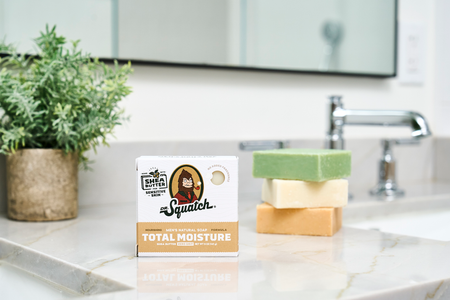
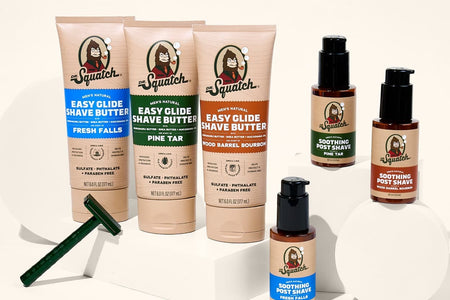
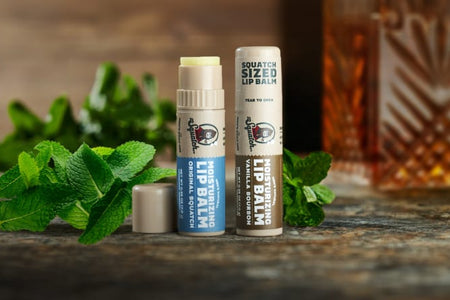

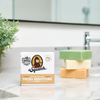
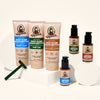
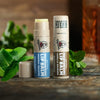


Leave a Reply
Your email address will not be published. Required fields are marked *